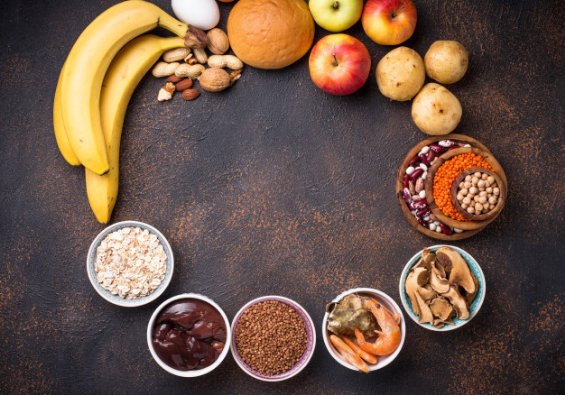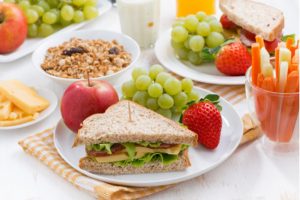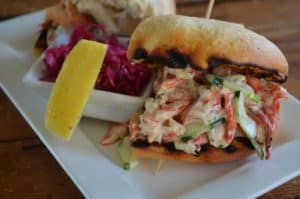A pregnant woman requires a properly balanced diet which includes all nutrients and proteins for the proper growth and development of the baby. They should always keep their body is healthy to cope up with the environmental changes.
For a good delivery and healthy baby, the mother’s diet includes all the nutritious food –that involves the proper balance of proteins, carbohydrates, and fats, and consuming a wide variety of organic foods like green leafy vegetables, and fresh and pesticide-free fruits.
Some women’s diets control is traditionally managed by ethical beliefs, religious requirements, or health conditions, so consulting a good gynaecologist doctor is an essential part of a healthy diet.
As mentioned above, the mother should strictly consume a balanced and nutritious diet, which includes:
- Fresh and pesticide-free fruits Fruit and fresh green leafy vegetables
- Prepare a menu chart that includes fruit and vegetables per day. It may be consumed in the form of juice, frozen, or fresh. Fresh and frozen gives usually have a higher amount of vitamins and other essential nutrients.
- Try to Eat fruit is always better than drinking the juice because natural sugar levels in juice are very high. Try to consume vegetable juices like carrot which contains a lot of nutrition which helps the baby’s bones development.
Take proper carbohydrate-rich foods
Carbohydrate-rich foods like fresh potatoes, rice, pasta, and bread. Carbohydrates are energy giving food, and are therefore an essential part of a good pregnancy diet.
Take maximum Protein-rich food
Healthful, maximum Protein-rich food is especially animal sources or nonveg food includes fish, fresh meat, and chicken, as well as duck eggs. All pregnant women should consider and strictly follow foods as good sources of protein: Beans, lentils, legumes, nuts, seeds, and nut kinds of butter are a good source of protein and iron.
Pregnant women who never consumed seafood or protein-rich food items had a 53 percent greater risk of suffering from high levels of anxiety, according to the concept of some health specialists and researchers.
Try to consume a plenty amount of Fiber in your diet
Always consume the proper amount of Wholegrain foods, which include bread, wild rice, whole grain pasta, pulses like beans and fruit, and vegetables are rich in fibre. During pregnancy Women sometimes have constipation issues; so to avoid that consuming more fibre-rich is effective.
Calcium
It is important to have a healthy daily intake of calcium. Dairy foods, such as cheese, milk, and yogurt are rich in calcium. If the mother is vegan, she should consider the following calcium-rich foods; calcium-fortified soymilk and other plant kinds of milk and juices, calcium-set tofu, soybeans, bok Choy, broccoli, collards, Chinese cabbage, okra, mustard greens, beans, kale, and sonnets.
Zinc
Zinc is an important element during the pregnancy period, especially during the first 3 months. It is the main food for normal growth and development of baby, for cellular integrity, and several internal functions including nucleic acid metabolism and protein synthesis.
Since all these functions are consist of growth and cell division of a baby, zinc is a major part of the development of the foetus. The best zinc-rich food items are chicken, crab, meat, fish, dairy products, beans, peanut butter, nuts, sunflower seeds, ginger, onions, bran, wheat germ, rice, pasta, cereals, eggs, and lentils,
An unavoidable food during pregnancy is Iron-rich food
Consuming more Iron-rich food helps in the growth of haemoglobin or blood count in the body. Haemoglobin is the oxygen-carrying pigment and main protein for the red blood cells; which carries oxygen throughout the body. During pregnancy, the amount of blood in the mother’s body increases by almost 50 percent – she needs more iron to make more haemoglobin for all that extra blood.
To meet the additional requirement of blood adequate stores of iron to need to be the increasing demands of their bodies, particularly after the 3rd or 4th month. If iron stores are inadequate, the mother may become anaemic, and there is a higher risk of:
- Preterm delivery.
- Low-weight baby.
- New-born death.
- Tiredness, irritability, depression (in the mother) during the pregnancy.
If the mother is anaemic later in the pregnancy, there is a higher risk of losing a lot of blood when she gives birth. The following foods are rich sources of iron:
- Dried beans.
- Dried fruits, such as apricots.
- Egg yolk.
- Some whole-grain cereals, if they are fortified with iron.
- The liver is rich in iron, but doctors and most dieticians advise pregnant women to avoid the liver. The liver is very high in vitamin A, which may harm the baby during pregnancy.
- Lamb, pork, and shellfish also contain iron, but less than the items listed above.
- Legumes – lima beans, soybeans, kidney beans, dried beans, and peas.
- Seeds – Brazil nuts and almonds.
- Vegetables, especially dark green ones – broccoli, spinach, dandelion leaves, asparagus, collards, and kale.
- Whole grains – brown rice, oats, millet, and wheat.
Non-animal sources of iron are less easily absorbed by the body. Mixing some lean meat, fish, or poultry with them can improve their absorption rates.






